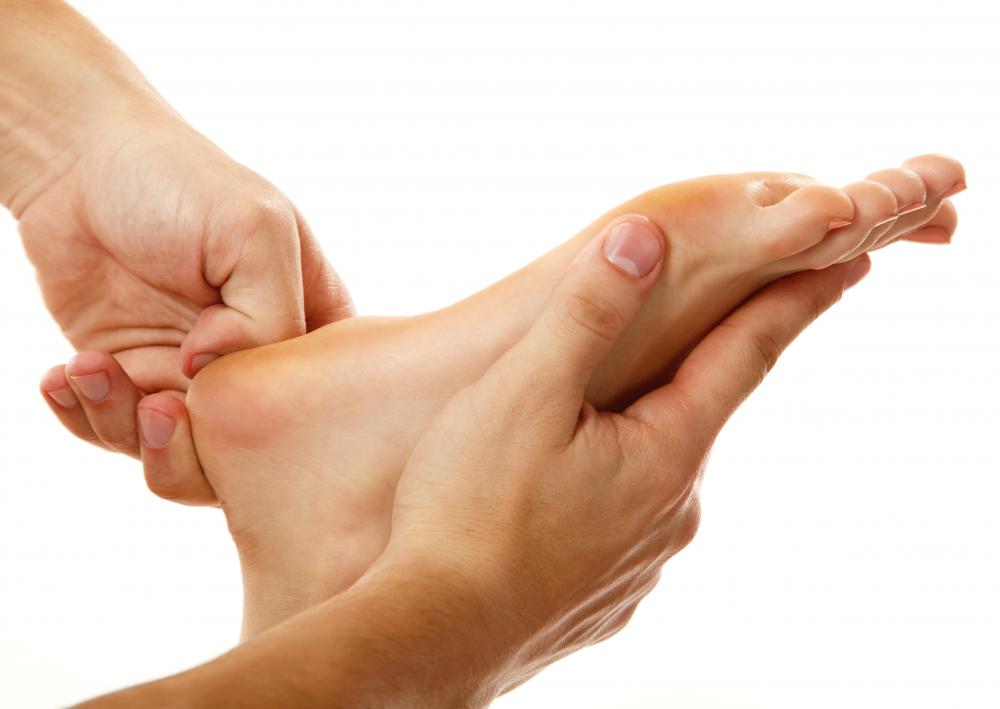At WiseGEEK, we're committed to delivering accurate, trustworthy information. Our expert-authored content is rigorously fact-checked and sourced from credible authorities. Discover how we uphold the highest standards in providing you with reliable knowledge.
What are the Different Types of Reflexology Certification?
Reflexology certification is typically offered by professional associations, each with its own certification criteria. Individuals who wish to practice reflexology professionally may be required by the laws in their area to obtain professional certification or licensure before performing reflexology on other people. Depending on the rules of a certifying board, a reflexologist may be required to receive separate reflexology certification in both hand and foot reflexology. Some massage schools may also offer a program leading to a certificate in reflexology, though this educational certification is not the same as professional reflexology certification.
In the practice of reflexology, a practitioner, also called a reflexologist, applies pressure using his hands and fingers to various points on a client's feet or hands. According to the theory of reflexology, these points correspond to other parts and systems of the body, and this stimulation can affect healing in those areas. The therapy is non-invasive and typically does not include the use of oils or lotions.

Reflexology is not foot massage, though some massage therapists may incorporate reflexology into their practice, and some massage schools may offer reflexology training to their students. Massage school training may meet the standards set by professional reflexology certification boards. The certification board may require the student to receive additional training or mentoring before he is eligible for certification.

Some professional associations that support the practice of reflexology offer a certification program for practitioners. These certification programs typically require aspiring reflexologists to complete an educational program, perform reflexology under the supervision of a certified reflexologist, and pass an exam. These organizations may require their members to renew their certification on a regular basis, and renewal may be conditional on the reflexologist's completion of continuing education courses.
As an alternative healing modality, reflexology is not always subject to legal control. Some jurisdictions do not regulate the practice of reflexology other than to forbid anyone who is not a licensed medical professional from diagnosing or treating medical conditions. In other jurisdictions, reflexology may be considered a form of massage. If a jurisdiction regards reflexology as a practice separate from that of massage, it may require that reflexologists hold reflexology certification from a recognized association or that reflexologists receive separate licensure from a government agency. If the jurisdiction lumps reflexology in with massage, reflexologists may have no other choice but to receive training and licensure as a massage therapist.
AS FEATURED ON:
AS FEATURED ON:












Discuss this Article
Post your comments